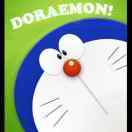
文章总结:文章围绕如何拥有一个令人满意的周末展开讨论。首先指出令人满意的周末因人而异,需兼顾放松与成就,且 “高效” 和 “满意” 的一天有所不同,满意更具主观性。接着提到心理上的待办事项清单可能成为压力源,看似规划工具实则可能记录着失败,应认识到这点并采用更精心策划的任务管理方式。还讲到手写待办事项清单会更有效,可涵盖必要事务与娱乐活动,不过将娱乐活动列成清单也可能使其变成负担,内心存在任务管理者和任性的一面的冲突。最后强调定义满意的一天要从设定意图出发,关注一天结束时想要的感受以及为此需采取的行动和决策,这样即便不符合传统高效的定义,周末也能更令人满意。
A satisfying weekend day can be elusive, as it varies from person to person and depends on a mix of relaxation and accomplishment. It's not just about crossing off tasks, but about aligning activities with one's mood, weather, and the week's context. The distinction between a "productive" and "satisfying" day is crucial; productivity implies a checklist of tasks, while satisfaction is more subjective and can be achieved without checking any boxes.
The mental to-do list can be a source of stress, a constant reminder of undone tasks that replaces one task with another as soon as it's completed. This can feel like a record of failure disguised as a planning tool. It's important to recognize this list for what it is and to consider the value of a more curated approach to task management.
A handwritten to-do list can be more effective, including both necessary chores and enjoyable activities that might otherwise feel like burdens. This approach can structure an otherwise unfocused day and silence the inner critic. The idea of a to-do list for pleasurable activities is intriguing, but it raises the question of whether the act of listing something can turn it into a chore. There's a constant battle between the inner taskmaster and the inner brat, which can turn even the most enjoyable activities into sources of conflict due to the desire for control.
Defining a satisfying day starts with intention. Rather than focusing on what wasn't done, consider how you want to feel at the end of the day. What actions or decisions will contribute to that feeling? By setting intentions and aligning activities with desired outcomes, a weekend day can become more satisfying, regardless of whether it aligns with traditional definitions of productivity.
适合学习的英语知识点:
- 词汇:“elusive”(难以捉摸的),例如:Success can be elusive for many people.(成功对很多人来说可能难以捉摸。)
“align”(使一致,使协调),如:We need to align our plans with the company's goals.(我们需要使我们的计划与公司的目标相一致。)
“curated”(精心挑选的,精心策划的),例如:This is a curated collection of artworks.(这是一批精心挑选的艺术作品。)
“intriguing”(有趣的,引人入胜的),如:The story is really intriguing.(这个故事非常有趣。)
“taskmaster”(工头,严格的监工),例如:My boss is a real taskmaster.(我的老板是个很严格的监工。)
“brat”(顽童,没有规矩的人),如:Don't be such a brat.(别这么没规矩。)
- 短语:“vary from... to...”(从…… 到…… 不等),例如:The weather varies from hot to cold in this area.(这个地区的天气从炎热到寒冷不等。)
“cross off”(划掉,勾销),如:Please cross off the items you have already finished.(请划掉你已经完成的项目。)
“replace... with...”(用…… 替换……),例如:We can replace the old machine with a new one.(我们可以用一台新机器替换这台旧机器。)
“turn... into...”(把…… 变成……),如:Hard work can turn your dream into reality.(努力工作能把你的梦想变成现实。)
“focus on”(专注于),例如:You should focus on your study.(你应该专注于你的学习。)
�
空空如也
暂无小宇宙热门评论

